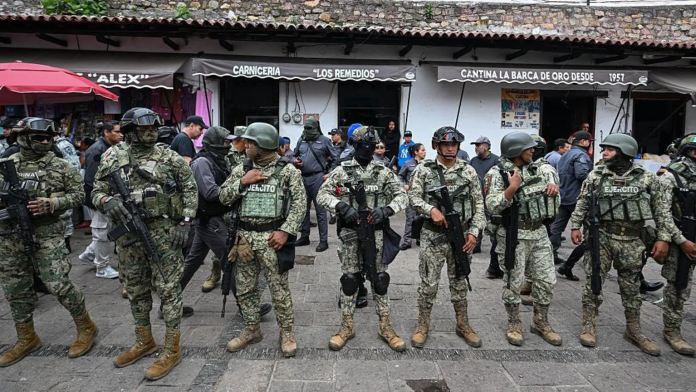Mexico transferred 26 high-ranking cartel operatives to United States custody in a significant bilateral security operation, AP News reported.
The group, expelled on Tuesday, includes Abigael González Valencia, a principal leader of the “Los Cuinis” financial network aligned with the Jalisco New Generation Cartel (CJNG), and Roberto Salazar, sought for involvement in the 2008 killing of a Los Angeles County sheriff’s deputy.
Other individuals maintain connections to the Sinaloa Cartel and additional violent trafficking syndicates, marking the second such transfer following February’s extradition of 29 figures including drug lord Rafael Caro Quintero.
The operation proceeded after the US Justice Department reaffirmed its commitment not to seek capital punishment against any defendants, extending assurances initially provided during February’s transfer. Attorney General Pam Bondi emphasised the collective culpability of those extradited.
“These 26 men have all played a role in bringing violence and drugs to American shores — under this Department of Justice, they will face severe consequences for their crimes against this country. We are grateful to Mexico’s National Security team for their collaboration in this matter,” Bondi stated.
US Ambassador Ronald Johnson hailed the collaboration as “another example of what is possible when two governments stand united against violence and impunity.”
Strategic figures and sovereignty concerns
Among the transferred individuals was Servando Gómez Martínez (“La Tuta”), the former head of the Knights Templar cartel that once dominated Michoacán through a blend of political manipulation, commercial control, and brutal enforcement. Captured in 2015 and sentenced to 55 years in Mexico, his extradition underscores the operation’s focus on high-impact targets.
Abigael González Valencia’s handover holds particular significance given his role financing CJNG’s expansion alongside his brothers. His arrest in Puerto Vallarta in 2015 preceded years of resistance against extradition.
The US government offers a $15 million reward for information leading to the capture of his brother-in-law, CJNG leader Nemesio “El Mencho” Oseguera Cervantes. José González Valencia, another brother, received a 30-year US sentence in June after his 2017 arrest in Brazil.
This extradition occurs against a backdrop of intensified US pressure to stem cross-border drug flows, with the Trump administration designating CJNG and seven other Latin American groups as foreign terrorist organisations in February.
The February transfer averted impending 25% US tariffs on Mexican goods. Late in July, Presidents Trump and Claudia Sheinbaum agreed to postpone threatened 30% tariffs for 90 days to facilitate negotiations, linking trade policy directly to security outcomes.
The CJNG remains a primary US concern, trafficking hundreds of tonnes of cocaine, methamphetamine, and fentanyl while employing extreme violence and corruption.
